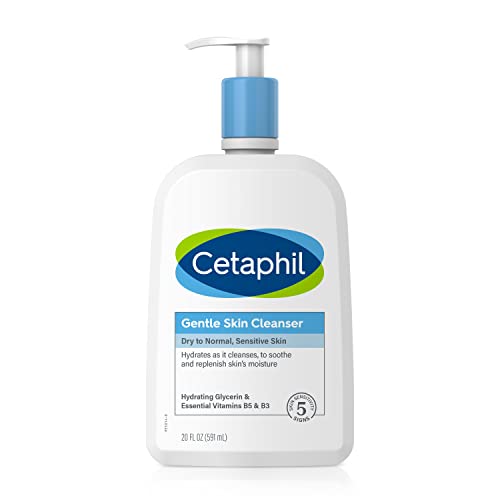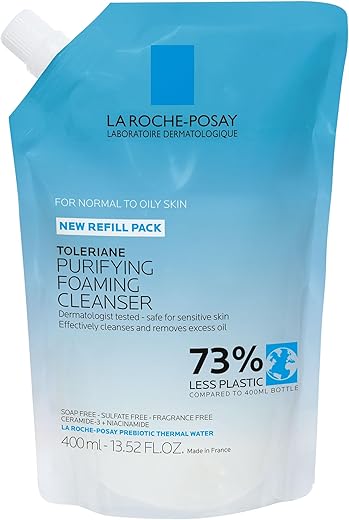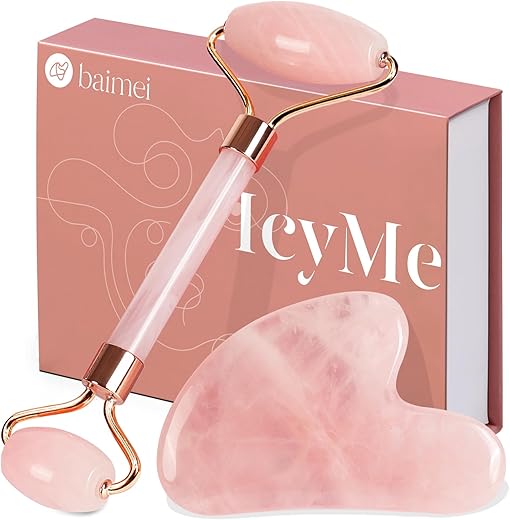
The Science Behind Face Creams
Are you tired of dealing with dry, flaky skin? Does it feel like no matter how much moisturizer you use, your skin still lacks that healthy glow? If you can relate, then this blog post is for you. We understand the frustration of battling dry skin, and that’s why we’re here to explore the science behind face creams. Join us as we uncover the secrets behind these magical potions and discover how they can effectively hydrate and nourish your skin. Get ready to say goodbye to dryness and hello to a radiant complexion!
Top-rated face creams for dry skin






What is Dry Skin?
Dry skin, also known as xerosis, is a common skin condition characterized by a lack of moisture in the outermost layer of the skin. It occurs when the skin fails to retain enough water, leading to tightness, itching, and sometimes flaking or cracking. Understanding the roots of dry skin is essential to effectively address and manage this condition.


Factors Contributing to Dry Skin
Several factors can contribute to the occurrence of dry skin. These include:
- Environmental Factors
- Low humidity levels
- Cold weather conditions
- Excessive exposure to the sun or wind
- Genetics
- Certain individuals may have a genetic predisposition to dry skin
- Age
- As we age, our skin tends to produce less natural oils, resulting in drier skin
- Harsh Products
- Using harsh soaps, cleansers, or skincare products that strip away natural oils
- Medical Conditions
- Certain medical conditions such as eczema, psoriasis, or hypothyroidism can contribute to dry skin
- Hot Showers
- Prolonged exposure to hot water can remove the skin’s natural oils, leading to dryness
Characteristics of Dry Skin
To identify dry skin, look out for the following characteristics:
- Rough Texture
- Dry skin often feels rough to the touch and lacks smoothness
- Tightness
- Dry skin can feel tight, especially after washing or showering
- Flaking or Scaling
- Dry skin may exhibit flaking or scaling, particularly in areas prone to dryness such as the elbows or knees
- Itching
- Dry skin is often accompanied by itching, which can be mild to severe
- Dull Appearance
- Dry skin lacks a natural glow and can appear dull or lackluster
Selecting the Right Face Creams
Choosing the right face creams is vital to combat dry skin effectively. Look for products that offer the following benefits:
- Hydration: Opt for face creams with hydrating ingredients like hyaluronic acid or glycerin to replenish moisture levels in the skin.
- Emollients: Look for face creams that contain emollients such as shea butter or ceramides to help seal in moisture and restore the skin’s protective barrier.
- Humectants: Consider face creams with humectants like urea or lactic acid, which attract water to the skin and help retain moisture.
- Non-Irritating Formulations: Choose face creams that are free from harsh chemicals, fragrances, or dyes, as these can further irritate dry skin.
- SPF Protection: Opt for face creams with added SPF protection to shield your skin from harmful UV rays, especially when exposed to the sun.
By considering these factors and selecting the right face cream, you can nourish and hydrate your skin, effectively managing dryness and achieving a healthier, more radiant complexion.
Remember, understanding your skin is the first step towards achieving optimal skincare.
How Face Creams Work
When it comes to skincare, face creams are an essential part of our routine. But have you ever wondered how these creams actually work to moisturize and hydrate our skin? In this blog post, we will delve into the science behind face creams and explore the key ingredients and their mechanisms of action.



Understanding Moisture and Hydration
Before we dive into the specifics of face creams, let’s first understand the concepts of moisture and hydration in the context of skincare. Moisture refers to the water content within our skin, while hydration refers to the process of increasing the water content. Proper moisture and hydration are crucial for maintaining healthy, radiant skin.
Key Ingredients in Face Creams
Face creams are formulated with a variety of ingredients that work together to moisturize and hydrate the skin. Let’s take a closer look at some of these key ingredients and how they contribute to the overall effectiveness of face creams:
1. Humectants
Humectants are ingredients that attract and bind water molecules to the skin, helping to increase moisture levels. Some common humectants found in face creams include:
- Hyaluronic Acid: Known for its exceptional water-retaining properties, hyaluronic acid can hold up to 1000 times its weight in water, providing intense hydration and plumping the skin.
- Glycerin: This humectant draws moisture from the air and helps to seal it into the skin, keeping it hydrated for longer periods.
2. Emollients
Emollients are ingredients that help to soften and smooth the skin’s surface by forming a protective barrier. They help to reduce water loss and maintain moisture levels. Common emollients found in face creams include:
- Shea Butter: Renowned for its moisturizing properties, shea butter forms a protective layer on the skin, keeping it nourished and hydrated.
- Jojoba Oil: Mimicking the skin’s natural oils, jojoba oil helps to balance moisture levels and improve overall hydration.
3. Occlusives
Occlusives are ingredients that create a physical barrier on the skin’s surface, preventing water loss and sealing in moisture. They can be particularly beneficial for individuals with dry or dehydrated skin. Some common occlusives found in face creams include:
- Petroleum Jelly: An effective occlusive, petroleum jelly forms a barrier that helps to prevent moisture from evaporating from the skin.
- Beeswax: This natural ingredient creates a protective seal on the skin, locking in moisture and promoting hydration.
How Face Creams Work
Now that we understand the key ingredients in face creams, let’s explore how they work together to moisturize and hydrate the skin:
- Attracting and Binding Moisture: Humectants such as hyaluronic acid and glycerin attract water molecules to the skin, increasing moisture levels and preventing dehydration.
- Sealing in Moisture: Emollients like shea butter and jojoba oil help to form a protective barrier on the skin, reducing water loss and maintaining hydration.
- Preventing Water Evaporation: Occlusives such as petroleum jelly and beeswax create a physical barrier on the skin’s surface, preventing moisture from evaporating and promoting long-lasting hydration.
Benefits of Face Creams
Face creams offer a range of benefits beyond moisturization and hydration. Here are some key points to consider:
- Improved Skin Texture: Regular use of face creams can help to soften and smooth the skin, leaving it looking and feeling more supple.
- Anti-Aging Effects: Face creams with ingredients like retinol or peptides can help to reduce the appearance of fine lines and wrinkles, promoting a youthful complexion.
- Protection Against Environmental Factors: Some face creams contain antioxidants and SPF, providing protection against harmful UV rays and environmental pollutants.
- Enhanced Skin Barrier Function: The combination of ingredients in face creams helps to strengthen the skin’s natural barrier, improving its ability to retain moisture and defend against external aggressors.
In conclusion, face creams play a vital role in moisturizing and hydrating the skin. By understanding the science behind these creams and their key ingredients, we can make more informed choices about the products we use in our skincare routine. So, next time you reach for that face cream, remember the powerful mechanisms at work to keep your skin healthy and radiant.
Choosing the Right Face Creams
Choosing the right face cream for dry skin can make a world of difference in the health and appearance of your skin. With so many options available in the market, it can be overwhelming to find the perfect product that suits your needs. In this blog post, we will provide you with valuable insights into factors to consider when selecting face creams for dry skin. We will discuss the importance of ingredients, formulation, and suitability for individual skin types.


Importance of Ingredients
When it comes to face creams for dry skin, the ingredients play a crucial role in providing the necessary hydration and nourishment. Here are some key ingredients to look for:
- Hyaluronic Acid: Known for its excellent moisturizing properties, hyaluronic acid helps to retain moisture in the skin, keeping it hydrated and plump.
- Glycerin: This humectant attracts water to the skin, creating a protective barrier that prevents moisture loss.
- Ceramides: These lipids help to strengthen the skin’s natural barrier, preventing water loss and maintaining hydration levels.
- Natural Oils: Ingredients like argan oil, jojoba oil, and avocado oil provide deep hydration and nourishment, replenishing dry skin.
Formulation Matters
Apart from the right ingredients, the formulation of the face cream is equally important. Consider the following factors:
- Texture: Opt for creams with a rich and creamy texture that can deeply moisturize your skin without feeling heavy or greasy.
- Absorption: Look for products that are easily absorbed into the skin, allowing the active ingredients to penetrate deeply for maximum hydration.
- Non-comedogenic: Ensure that the face cream is non-comedogenic, meaning it won’t clog your pores and cause breakouts.
Suitability for Individual Skin Types
Not all face creams are created equal, and what works for one person may not work for another. Consider your specific skin type and concerns before making a selection. Here’s a breakdown:
- Dry Skin: Look for face creams specifically formulated for dry skin, as they will provide intense hydration and help replenish moisture levels.
- Combination Skin: Opt for lightweight face creams that hydrate without leaving a greasy residue, balancing the needs of both dry and oily areas.
- Sensitive Skin: Choose face creams that are fragrance-free and hypoallergenic to minimize the risk of irritation.
Comparison Table: Key Points to Consider
To make it easier for you to choose the right face cream for your dry skin, we have compiled a comparison table highlighting key points to consider:
| Face Cream | Key Points |
|---|---|
| Brand A | Contains hyaluronic acid and ceramides for deep hydration |
| Brand B | Lightweight formula suitable for combination skin |
| Brand C | Fragrance-free and hypoallergenic for sensitive skin |
| Brand D | Rich and creamy texture for intense hydration |
Scientifically Backed Face Creams
Dry skin can be a persistent problem, causing discomfort and a dull complexion. Fortunately, there are scientifically backed face creams that have been proven to effectively improve dry skin conditions. In this section, we will delve into the key ingredients of these creams and present research studies that support their claims.


1. Hyaluronic Acid-based Face Creams
Hyaluronic acid is a renowned ingredient in skincare due to its powerful moisturizing properties. It has the ability to hold up to 1000 times its weight in water, making it an excellent humectant for dry skin. Scientific studies have shown that hyaluronic acid-based face creams:
- Improve skin hydration by locking in moisture
- Enhance skin elasticity and firmness
- Reduce the appearance of fine lines and wrinkles
2. Ceramide-infused Face Creams
Ceramides are natural lipids found in the skin that help maintain its moisture barrier. When the skin lacks sufficient ceramides, dryness and irritation can occur. Face creams containing ceramides have been scientifically proven to:
- Strengthen the skin’s barrier function
- Retain moisture and prevent transepidermal water loss
- Soothe dry and sensitive skin
3. Niacinamide-enriched Face Creams
Niacinamide, also known as vitamin B3, offers numerous benefits for dry skin. This multifunctional ingredient has been extensively studied and proven to:
- Improve skin hydration and reduce water loss
- Enhance the skin’s natural barrier function
- Minimize redness and inflammation associated with dryness
4. Shea Butter-based Face Creams
Shea butter is a natural emollient extracted from the nuts of the shea tree. It is rich in fatty acids and vitamins, making it an excellent moisturizer for dry skin. Scientific research has shown that shea butter-based face creams:
- Provide intense hydration and long-lasting moisturization
- Soften and smoothen rough and dry patches
- Protect the skin against environmental stressors
5. Olive Oil-infused Face Creams
Olive oil has been used for centuries in skincare due to its nourishing and moisturizing properties. Face creams infused with olive oil have been scientifically proven to:
- Improve skin hydration and prevent water loss
- Enhance the skin’s elasticity and suppleness
- Reduce the appearance of fine lines and wrinkles
Comparison Table: Key Features of Scientifically Backed Face Creams
| Face Cream | Key Ingredients | Benefits |
|---|---|---|
| Hyaluronic Acid-based | Hyaluronic acid | – Improved hydration |
| – Enhanced elasticity and firmness | ||
| – Reduced appearance of fine lines and wrinkles | ||
| Ceramide-infused | Ceramides | – Strengthened skin barrier |
| – Retained moisture and prevented water loss | ||
| – Soothed dry and sensitive skin | ||
| Niacinamide-enriched | Niacinamide | – Improved hydration and reduced water loss |
| – Enhanced natural barrier function | ||
| – Minimized redness and inflammation | ||
| Shea Butter-based | Shea butter | – Intense hydration and long-lasting moisturization |
| – Softened and smoothened rough, dry patches | ||
| – Protection against environmental stressors | ||
| Olive Oil-infused | Olive oil | – Improved hydration and prevention of water loss |
| – Enhanced elasticity and suppleness | ||
| – Reduced appearance of fine lines and wrinkles |
In conclusion, these scientifically backed face creams offer effective solutions for dry skin. Whether you choose a hyaluronic acid-based cream, a ceramide-infused formulation, a niacinamide-enriched product, a shea butter-based option, or an olive oil-infused cream, you can feel confident that your dry skin will be well-nourished, hydrated, and protected. Incorporating these creams into your skincare routine can lead to a more revitalized and radiant complexion.
Unveiling the Truth: The Power and Limitations of Face Creams
In conclusion, delving into the science behind face creams is crucial for achieving optimal results in dry skin treatment. By prioritizing face creams with hydrating ingredients and personalized formulations, individuals can better address their unique skincare needs.

Hey, I’m Ava Wilson—a skincare enthusiast and a certified esthetician. I’m dedicated to sharing my knowledge and empowering others to achieve healthy, glowing skin through simple, effective routines and natural remedies. Join me on this exciting skincare journey, and let’s unlock your skin’s potential for a confident, beautiful you.





